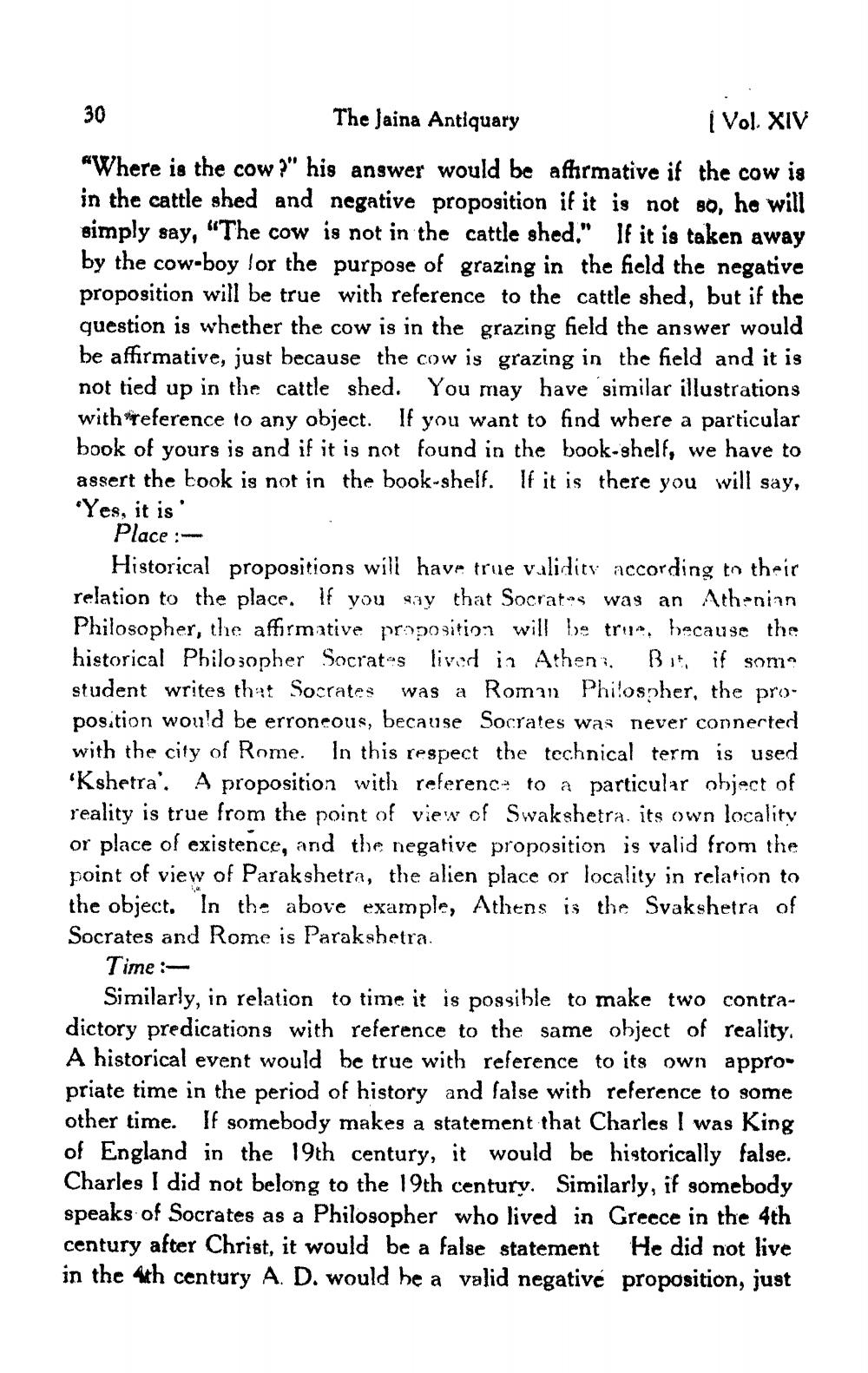________________
The Jaina Antiquary
Vol. XIV "Where is the cow?" his answer would be afhrmative if the cow is in the cattle shed and negative proposition if it is not so, he will simply say, "The cow is not in the cattle shed." If it is taken away by the cow-boy lor the purpose of grazing in the field the negative proposition will be true with reference to the cattle shed, but if the question is whether the cow is in the grazing field the answer would be affirmative, just because the cow is grazing in the field and it is not tied up in the cattle shed. You may have similar illustrations with reference to any object. If you want to find where a particular book of yours is and if it is not found in the book-shelf, we have to assert the took is not in the book-shelf. If it is there you will say, *Yes, it is
Place:
Historical propositions will have true validity according to their relation to the place. If you say that Socrates was an Athenian Philosopher, the affirmative proposition will be true, because the historical Philosopher Socrates lived in Athens. But if som student writes that Socrates was a Roman Philospher, the proposition would be erroneous, because Socrates was never connected with the city of Rome. In this respect the technical term is used *Kshetra'. A proposition with reference to a particular object of reality is true from the point of view of Swakshetra. its own locality or place of existence, and the negative proposition is valid from the point of view of Parakshetra, the alien place or locality in relation to the object. In the above example, Athens is the Svakshetra of Socrates and Rome is Parakshetra.
Time:
Similarly, in relation to time it is possible to make two contradictory predications with reference to the same object of reality. A historical event would be true with reference to its own appropriate time in the period of history and false with reference to some other time. If somebody makes a statement that Charles I was King of England in the 19th century, it would be historically false. Charles I did not belong to the 19th century. Similarly, if somebody speaks of Socrates as a Philosopher who lived in Greece in the 4th century after Christ, it would be a false statement He did not live in the ath century A. D. would be a valid negative proposition, just




